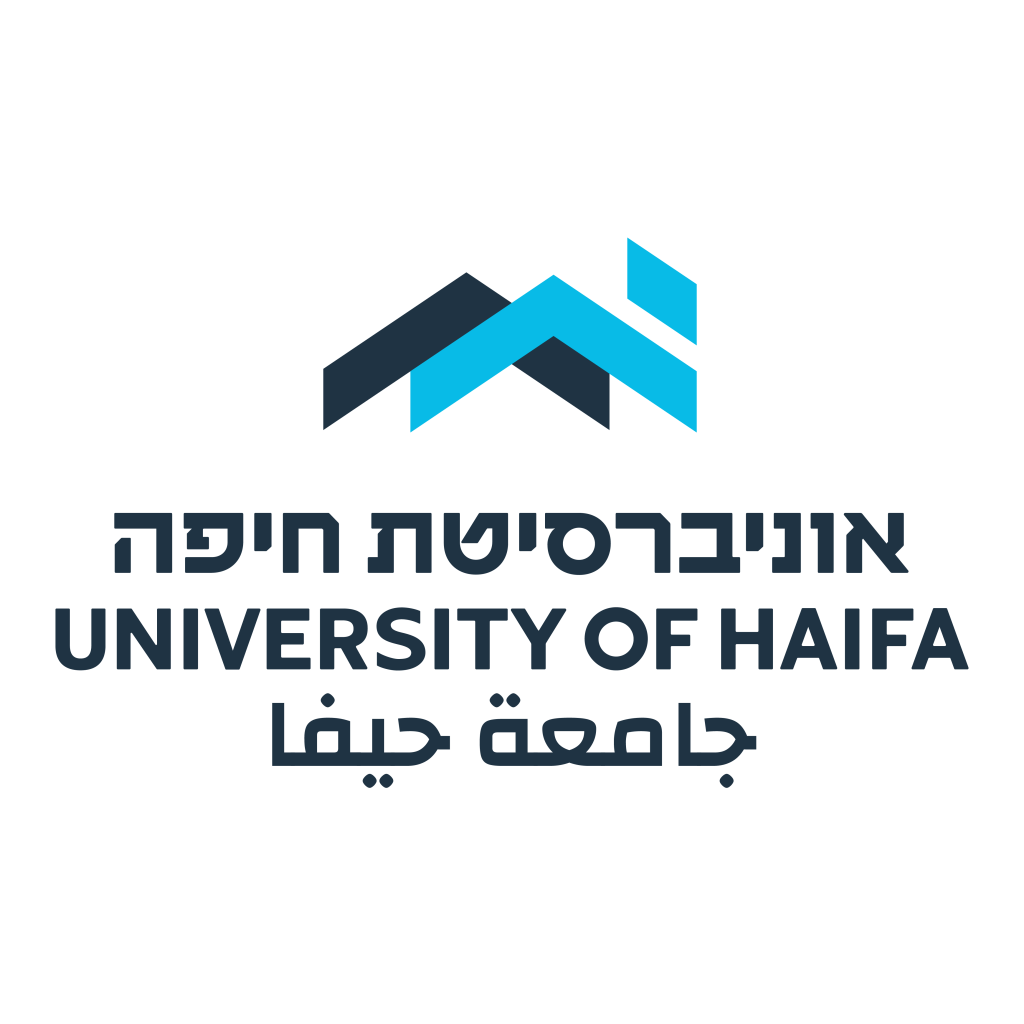Key-note speaker: Prof. Gabriel Weimann (Ph.D.)
 Gabriel Weimann is a Full Professor of Communication (Emeritus) at the Department of Communication at Haifa University, a Full Professor at the Interdisciplinary Center in Herzelia, Israel and a Visiting Professor at the University of Maryland, USA.
Gabriel Weimann is a Full Professor of Communication (Emeritus) at the Department of Communication at Haifa University, a Full Professor at the Interdisciplinary Center in Herzelia, Israel and a Visiting Professor at the University of Maryland, USA.
His research interests include the study of political campaigns, persuasion and influence, modern terrorism and the mass media, online terrorism and cyberterrorism. He published nine books including The Theater of Terror (New York: Longman, 1994); Terror in the Internet: The New Arena, the New Challenges (Washington, DC: USIP Press, 2006), Freedom and Terror (London: Routledge, 2011); and Terrorism in Cyberspace (New York: Columbia University Press, 2015). His 200 scientific articles have been published in leading academic journals and he received numerous grants and awards from international foundations, including the Fulbright Foundation, the US National Institute of Justice (NIJ), the Canada Israel Foundation, the Alexander von Humboldt Stiftung, the German National Research Foundation (D.F.G.), The U.S. Education Foundation, OSCE – the Organization for Security and Co-operation in Europe, the Sasakawa Foundation, the United States Institute for Peace (USIP), The Woodrow Wilson Center, the Australian Research Council (ARC) and others. Prof. Weimann was a Visiting Professor at various universities including the University of Pennsylvania, Stanford University, University of Maryland, American University (DC), Hofstra University, Lehigh University (in USA), University of Mainz and University of Munich (in Germany), Carleton University (in Canada), NYU branch in Shanghai, China and the National University of Singapore (NUS).
Citations (Google Scholar): 10,000 H-Index: 45
(in alphabetical order)
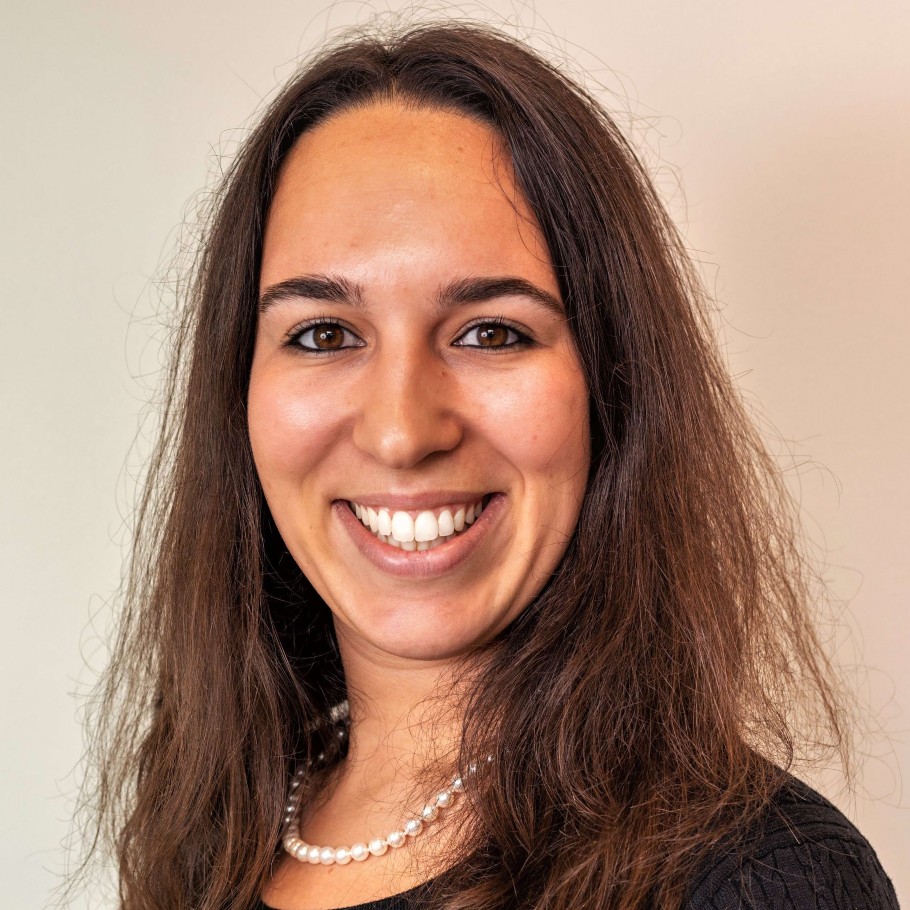 Elena Abrusci is a Lecturer in Law at Brunel University London. Her research focuses on regional human rights systems, digital regulation and the impact of new technologies on human rights. She served as a Policy Advisor on Digital Regulation at the UK Department for Digital, Culture, Media and Sport and she was a Postdoctoral Fellow (Senior Research Officer) at the Human Rights, Big Data and Technology Project at the University of Essex. She has been working with the UN OHCHR and UNESCO on online disinformation and supported the implementation of the UN Plan of Action on Hate Speech in relation to online hate speech. Elena has a PhD in Law from the University of Nottingham and an interdisciplinary background in politics with degrees from the University of Pisa, the University of Florence, Sant’Anna School of Advanced Studies in Pisa and Sciences Po Paris.
Elena Abrusci is a Lecturer in Law at Brunel University London. Her research focuses on regional human rights systems, digital regulation and the impact of new technologies on human rights. She served as a Policy Advisor on Digital Regulation at the UK Department for Digital, Culture, Media and Sport and she was a Postdoctoral Fellow (Senior Research Officer) at the Human Rights, Big Data and Technology Project at the University of Essex. She has been working with the UN OHCHR and UNESCO on online disinformation and supported the implementation of the UN Plan of Action on Hate Speech in relation to online hate speech. Elena has a PhD in Law from the University of Nottingham and an interdisciplinary background in politics with degrees from the University of Pisa, the University of Florence, Sant’Anna School of Advanced Studies in Pisa and Sciences Po Paris.
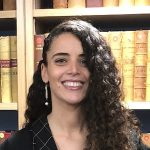 Hadeel Abu Hussein, is a post-doctoral fellow at the Minerva Centre for the Rule of Law under Extreme Condition at the University of Haifa. She holds a PhD in Law from the National University of Ireland, Galway. Previously, she was a Senior research fellow and consultancy advisor at the Max Planck Foundation for International Peace and Rule of Law, Heidelberg, Germany, for the Middle East & North Africa projects. In particular: “Strengthening the new Constitutional Court in Morocco”. The projects focus on supporting justice institutions, governments and parliaments as well as non-state actors in various areas of law, such as public international law, the protection of human rights, international fair trial standards, international humanitarian law, comparative constitutional law and administrative law. Also, she was a Research Visitor and Bonavero Early Career Fellow at the Bonavero Institute of Human Rights, Faculty of Law, Mansfield College, University of Oxford. In addition, she was a Postdoctoral research fellow at the Middle East Centre, St. Antony’s College, Oxford University.
Hadeel Abu Hussein, is a post-doctoral fellow at the Minerva Centre for the Rule of Law under Extreme Condition at the University of Haifa. She holds a PhD in Law from the National University of Ireland, Galway. Previously, she was a Senior research fellow and consultancy advisor at the Max Planck Foundation for International Peace and Rule of Law, Heidelberg, Germany, for the Middle East & North Africa projects. In particular: “Strengthening the new Constitutional Court in Morocco”. The projects focus on supporting justice institutions, governments and parliaments as well as non-state actors in various areas of law, such as public international law, the protection of human rights, international fair trial standards, international humanitarian law, comparative constitutional law and administrative law. Also, she was a Research Visitor and Bonavero Early Career Fellow at the Bonavero Institute of Human Rights, Faculty of Law, Mansfield College, University of Oxford. In addition, she was a Postdoctoral research fellow at the Middle East Centre, St. Antony’s College, Oxford University.
Hadeel studied for her LL.B and LL.M degrees at Tel Aviv University; she is a member of the Israel Lawyers Bar. Prior to starting her doctorate studies in Ireland, she completed an Executive Education, ‘Leadership Program for Legal and Business Women, Legal and Business Fellowship’ at the Wharton Business School and Penn law at the University of Pennsylvania, USA. While at the National University of Ireland she was a Doctorate Fellow, where she taught international human rights law and minority rights. Following that, she spent time as a postgraduate visitor at Max Planck Institute for Comparative Public Law and International Law, Heidelberg, Germany.
Alongside her research, Hadeel practices human rights law and constitutional law in Israel/Palestine, and MENA region where she still collaborating with human rights organisations international civil-society organisations as legal advisor and volunteer.
Her book, The Struggle for Land Under Israeli Law, ”An Architecture of Exclusion”, came out with Routledge in November 2021.
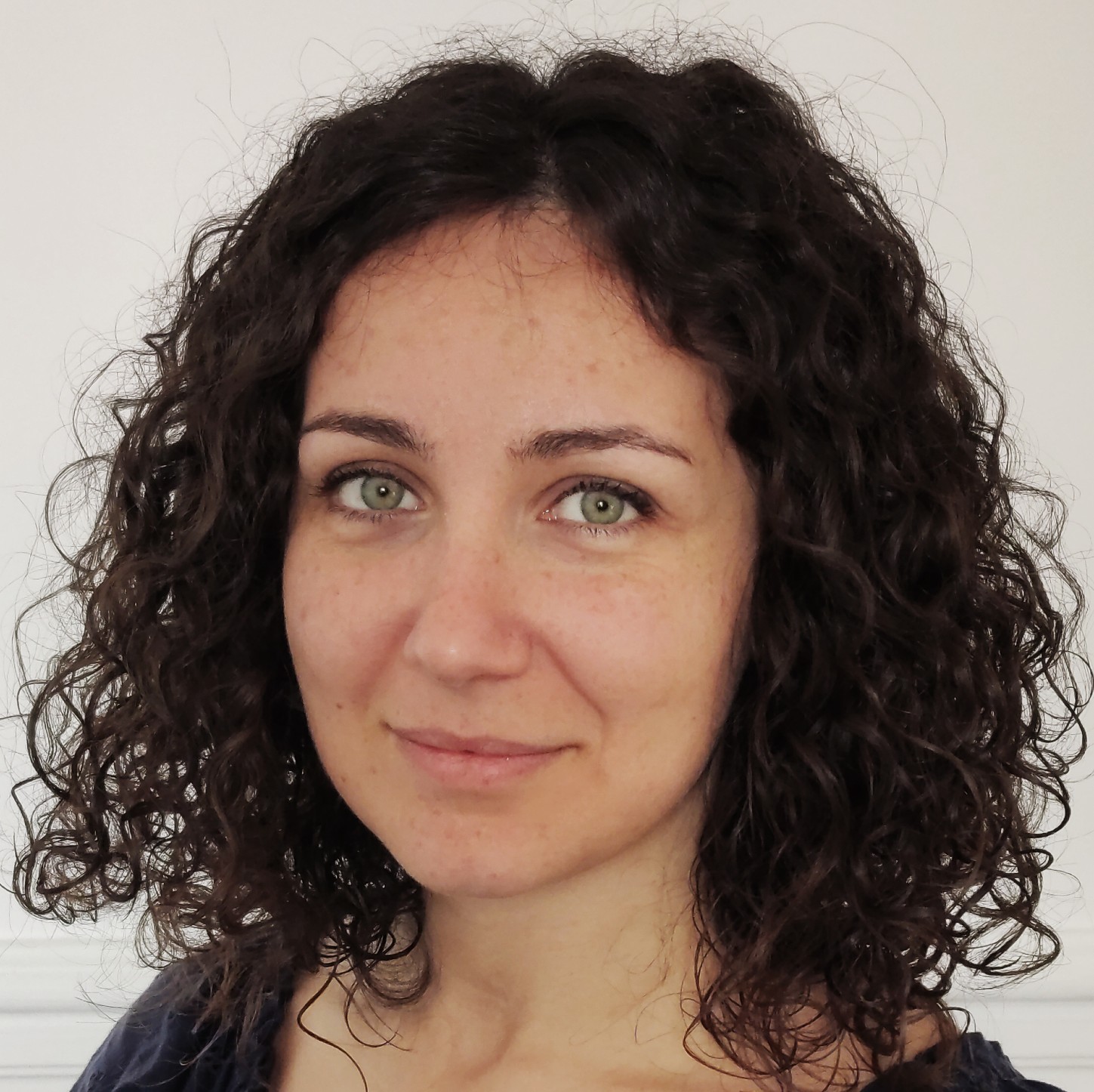 Laura Ascone’s research focuses on computer-mediated communication, on the expression of emotions as well as on hate speech. She defended her PhD in linguistics at Université Paris Seine. Her thesis on “The Radicalisation through the Expression of Emotions on the Internet” dealt with the rhetorical strategies used in both jihadist propaganda and counter-narrative. She then conducted a postdoctoral research at Université de Lorraine on online hate speech against migrants. She is currently a postdoctoral fellow at the Center for Research on Antisemitism (ZfA) at Technische Universität Berlin for the international project Decoding Antisemitism: An AI-driven Study on Hate Speech and Imagery Online. She is also part of different research networks dealing with social issues such as R2DIP (Network of Researches on Institutional and Political Discourses), R2S (Risks, Society and Security), and Draine, a research group established as part of the Horizon 2020 European project PRACTICIES (Partnership against violent radicalization in the cities).
Laura Ascone’s research focuses on computer-mediated communication, on the expression of emotions as well as on hate speech. She defended her PhD in linguistics at Université Paris Seine. Her thesis on “The Radicalisation through the Expression of Emotions on the Internet” dealt with the rhetorical strategies used in both jihadist propaganda and counter-narrative. She then conducted a postdoctoral research at Université de Lorraine on online hate speech against migrants. She is currently a postdoctoral fellow at the Center for Research on Antisemitism (ZfA) at Technische Universität Berlin for the international project Decoding Antisemitism: An AI-driven Study on Hate Speech and Imagery Online. She is also part of different research networks dealing with social issues such as R2DIP (Network of Researches on Institutional and Political Discourses), R2S (Risks, Society and Security), and Draine, a research group established as part of the Horizon 2020 European project PRACTICIES (Partnership against violent radicalization in the cities).
 Gad Barzilai is a Full Professor of law, political science and international studies, Professor Emeritus at University of Washington, Dean Emeritus of University of Haifa Law Faculty and former Vice Provost and Head of the International School, University of Haifa. His academic degrees and training are from Tel Aviv University, Hebrew University Jerusalem, Yale, and University of Michigan Ann Harbor. He has published 18 authored and edited books and about 170 articles, essays, chapters and conference proceedings in academic top journals and publishing houses on issues of law, society and politics. Several of his books are award winning books. Thus, for example, in his Communities and Law: Politics and Cultures of Legal Identities [University of Michigan Press, 2003, 2005] he paved the way for a new understating of the role of communities in shaping practices in law and towards it. This book was awarded the Best Book Prize by the AIS and was selected to a special conference panel in the Law and Society conference in Chicago (2004). In his Law and Religion [Ashgate, International Series on Law and Society, 2007] he has edited some of the classics on law and religion and made a meaningful contribution to our understanding of this topic. In his Wars, Internal Conflicts and Political Order [SUNY 1996], he has suggested a new way for understanding the construction of political-legal order and disorder in times of national security emergencies. The Hebrew manuscript of this book was awarded the Best Book Award in National Security by the Ben Gurion Foundation. Among others he has published on politics of rights, comparative law, law and political power, law and violence, communities and law, group rights, liberal jurisprudence, national security, democracies and law, and issues concerning Middle East and Israeli politics and law. In his research he is often combining knowledge in law, the social sciences, mainly political science and political sociology, with political theory, theories of jurisprudence, comparative politics and comparative law. He has been trained to use both qualitative and quantitative methodologies. Barzilai was the President of the Association for Israel Studies (2011-2013) and the Founding First Director of the Dan David Prize (1999-2002). He is a Board member of editorial boards in several world leading professional journals.
Gad Barzilai is a Full Professor of law, political science and international studies, Professor Emeritus at University of Washington, Dean Emeritus of University of Haifa Law Faculty and former Vice Provost and Head of the International School, University of Haifa. His academic degrees and training are from Tel Aviv University, Hebrew University Jerusalem, Yale, and University of Michigan Ann Harbor. He has published 18 authored and edited books and about 170 articles, essays, chapters and conference proceedings in academic top journals and publishing houses on issues of law, society and politics. Several of his books are award winning books. Thus, for example, in his Communities and Law: Politics and Cultures of Legal Identities [University of Michigan Press, 2003, 2005] he paved the way for a new understating of the role of communities in shaping practices in law and towards it. This book was awarded the Best Book Prize by the AIS and was selected to a special conference panel in the Law and Society conference in Chicago (2004). In his Law and Religion [Ashgate, International Series on Law and Society, 2007] he has edited some of the classics on law and religion and made a meaningful contribution to our understanding of this topic. In his Wars, Internal Conflicts and Political Order [SUNY 1996], he has suggested a new way for understanding the construction of political-legal order and disorder in times of national security emergencies. The Hebrew manuscript of this book was awarded the Best Book Award in National Security by the Ben Gurion Foundation. Among others he has published on politics of rights, comparative law, law and political power, law and violence, communities and law, group rights, liberal jurisprudence, national security, democracies and law, and issues concerning Middle East and Israeli politics and law. In his research he is often combining knowledge in law, the social sciences, mainly political science and political sociology, with political theory, theories of jurisprudence, comparative politics and comparative law. He has been trained to use both qualitative and quantitative methodologies. Barzilai was the President of the Association for Israel Studies (2011-2013) and the Founding First Director of the Dan David Prize (1999-2002). He is a Board member of editorial boards in several world leading professional journals.
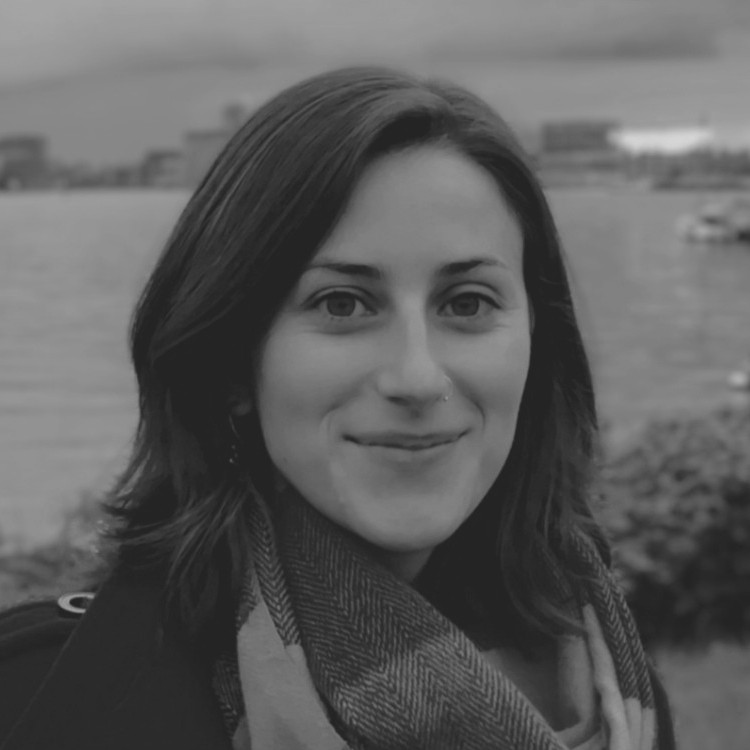 Laura Dellagiacoma is a PhD candidate at Friedrich-Schiller-University of Jena (Germany) and is working within the Institute for Democracy and Civil Society (IDCS)/Amadeu Antonio Stiftung (AAS). In her PhD project, Laura investigates the influential mechanisms between online hate speech on social media and hate crime, analysing both the micro- and macro- level processes.
Laura Dellagiacoma is a PhD candidate at Friedrich-Schiller-University of Jena (Germany) and is working within the Institute for Democracy and Civil Society (IDCS)/Amadeu Antonio Stiftung (AAS). In her PhD project, Laura investigates the influential mechanisms between online hate speech on social media and hate crime, analysing both the micro- and macro- level processes.
Laura Dellagiacoma graduated in Community Psychology at the the University of Padua (Italy) and gained experiences abroad at the University of Hamburg (Germany) and at University of Helsinki (Finland). Her master thesis is based on the research project “DigiIN – Towards socially inclusive digital society” of the University of Helsinki, in which she participated as a research assistant. After graduation, she worked as a project management assistant within the EUMINT Project (Euroregions, Migration and Integration) project of the Eurac research institute of Bolzano. Before joining NETHATE, Laura worked as a trainee at the European Union Agency for Fundamental Rights (FRA), within the research and data unit (R&D). In this role, she mainly worked on the EU Immigrants and Descendants Survey and on hate crime.
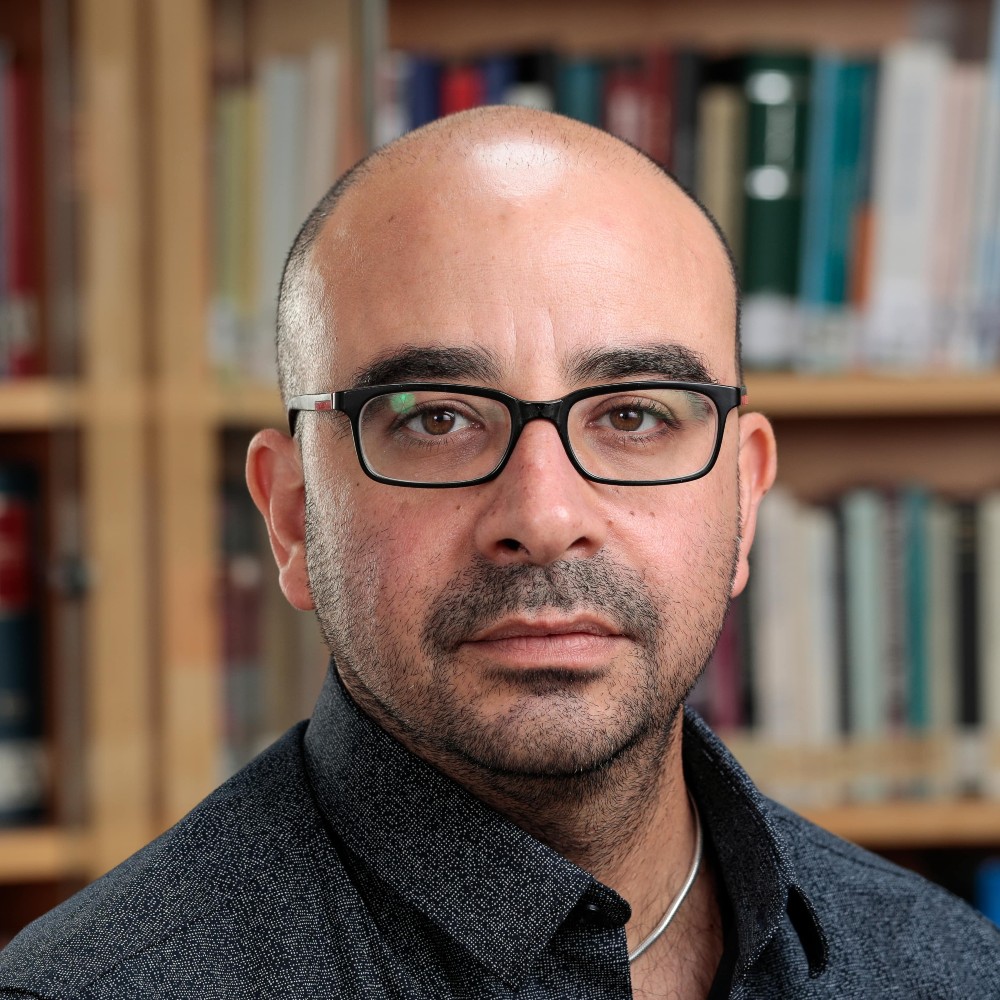 Assaf Derri is a PhD candidate in the faculty of law, University of Haifa, and a lecturer and legal clinics instructor at the Stricks faculty of law, College of Management. Derri holds an LLM from American University at Washington DC and an MA in literature from Tel-Aviv University.
Assaf Derri is a PhD candidate in the faculty of law, University of Haifa, and a lecturer and legal clinics instructor at the Stricks faculty of law, College of Management. Derri holds an LLM from American University at Washington DC and an MA in literature from Tel-Aviv University.
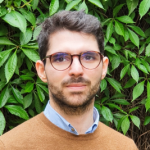 Giovanni De Gregorio is Postdoctoral Researcher at the Centre for Socio-Legal Studies at the University of Oxford. His research focuses on digital constitutionalism, platform governance and digital policy.
Giovanni De Gregorio is Postdoctoral Researcher at the Centre for Socio-Legal Studies at the University of Oxford. His research focuses on digital constitutionalism, platform governance and digital policy.
 Prof. Dr. Martin Emmer (FU Berlin) has been professor of Communication Studies and head of the Division Media Use Research at the Institute for Media and Communication Studies of Freie Universität Berlin since 2011. He was Founding Director of the Weizenbaum Institute for the Networked Society from 2017 to 2019. His research focuses on political communication and participation, on the use of digital media and methods of empirical communication research as well as on the use of digital media in international comparison and on the digital transformation of the public sphere. His latest projects digital media use of refugees, machine-learning methods for automated analysis of hate speech on the internet and emerging norms of digital citizenship.
Prof. Dr. Martin Emmer (FU Berlin) has been professor of Communication Studies and head of the Division Media Use Research at the Institute for Media and Communication Studies of Freie Universität Berlin since 2011. He was Founding Director of the Weizenbaum Institute for the Networked Society from 2017 to 2019. His research focuses on political communication and participation, on the use of digital media and methods of empirical communication research as well as on the use of digital media in international comparison and on the digital transformation of the public sphere. His latest projects digital media use of refugees, machine-learning methods for automated analysis of hate speech on the internet and emerging norms of digital citizenship.
 Efrat Fudem is a lawyer and social activist in Israel. She serves as a lecturer and legal clinics instructor at the Stricks Faculty of Law, College of Management. Efrat holds a LLB in Law and Political Science from Bar-Ilan University and an LLM with an emphasis on human rights and international law from the Emile Zola Center College. Her areas of research are legal violence, law and culture, law and gender, and libel laws.
Efrat Fudem is a lawyer and social activist in Israel. She serves as a lecturer and legal clinics instructor at the Stricks Faculty of Law, College of Management. Efrat holds a LLB in Law and Political Science from Bar-Ilan University and an LLM with an emphasis on human rights and international law from the Emile Zola Center College. Her areas of research are legal violence, law and culture, law and gender, and libel laws.
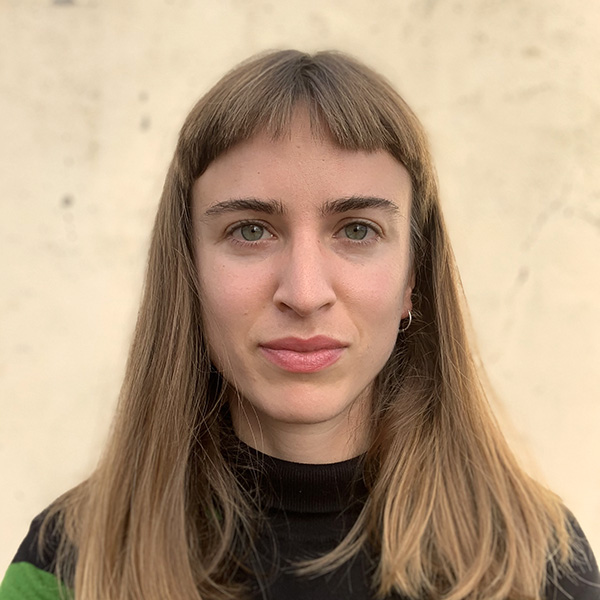 Eva Nave is a PhD candidate at the Center for Law and Digital Technologies (eLaw), at the Leiden University Law School. She is part of the NETHATE project, a Marie Skłodowska-Curie Actions Innovative Training Network, and her research focuses on employing European human rights law to develop a fundamental rights’ framework to counter online hate speech. Eva obtained a LL.B. in Law at the Nova University of Lisbon, a Postgraduation in Human Rights at the Coimbra University, and a LL.M. in Public International Law at the Leiden University. During her LL.M., she worked with the International Committee of the Red Cross to research compliance with International Humanitarian Law in modern warfare. Before joining eLaw, Eva worked with the United Nations Mine Action Service, where she contributed with legal research, policy and project advice on weapons control and conflict prevention in Mali, the Democratic Republic of the Congo and Colombia. Prior to that, she worked with non-governmental and governmental organizations in the field of human rights and as a trainee at the Secretariat for the Committee on Constitutional Affairs at the European Parliament.
Eva Nave is a PhD candidate at the Center for Law and Digital Technologies (eLaw), at the Leiden University Law School. She is part of the NETHATE project, a Marie Skłodowska-Curie Actions Innovative Training Network, and her research focuses on employing European human rights law to develop a fundamental rights’ framework to counter online hate speech. Eva obtained a LL.B. in Law at the Nova University of Lisbon, a Postgraduation in Human Rights at the Coimbra University, and a LL.M. in Public International Law at the Leiden University. During her LL.M., she worked with the International Committee of the Red Cross to research compliance with International Humanitarian Law in modern warfare. Before joining eLaw, Eva worked with the United Nations Mine Action Service, where she contributed with legal research, policy and project advice on weapons control and conflict prevention in Mali, the Democratic Republic of the Congo and Colombia. Prior to that, she worked with non-governmental and governmental organizations in the field of human rights and as a trainee at the Secretariat for the Committee on Constitutional Affairs at the European Parliament.
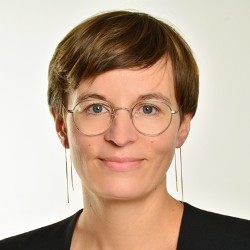 Sünje Paasch-Colberg is a Postdoc Researcher at the Institute for Media and Communication Studies at Freie Universität Berlin and at the German Centre for Integration and Migration Research (DeZIM Institute). She is currently involved in a research project on Islam coverage in the German media and a media monitoring project as part of the National Discrimination and Racism Monitor (NaDiRa) at DeZIM. From 2017 to 2021, she worked on the interdisciplinary project “NOHATE—Overcoming crises in public communication about refugees, migration, foreigners.” Her research interests include digital communication, migration, integration and media, and content analysis.
Sünje Paasch-Colberg is a Postdoc Researcher at the Institute for Media and Communication Studies at Freie Universität Berlin and at the German Centre for Integration and Migration Research (DeZIM Institute). She is currently involved in a research project on Islam coverage in the German media and a media monitoring project as part of the National Discrimination and Racism Monitor (NaDiRa) at DeZIM. From 2017 to 2021, she worked on the interdisciplinary project “NOHATE—Overcoming crises in public communication about refugees, migration, foreigners.” Her research interests include digital communication, migration, integration and media, and content analysis.
 Karolina Placzynta is a researcher in the Decoding Antisemitism: An AI-driven Study on Hate Speech and Imagery Online project at TU Berlin. She previously examined the patterns of discursive representations of immigration in the mainstream British media. She holds an MA in Applied Linguistics from the Manchester Metropolitan University, and an MRes degree in Politics and International Studies from the University of Bath (PoLIS). Apart from discourses of migration, racism and antisemitism, she is interested in the language of misogyny and gender inequality, language of social class dynamics, and intersections of discriminatory discourses. She is a member of the DiscourseNet association.
Karolina Placzynta is a researcher in the Decoding Antisemitism: An AI-driven Study on Hate Speech and Imagery Online project at TU Berlin. She previously examined the patterns of discursive representations of immigration in the mainstream British media. She holds an MA in Applied Linguistics from the Manchester Metropolitan University, and an MRes degree in Politics and International Studies from the University of Bath (PoLIS). Apart from discourses of migration, racism and antisemitism, she is interested in the language of misogyny and gender inequality, language of social class dynamics, and intersections of discriminatory discourses. She is a member of the DiscourseNet association.
 Amnon Reichman is a full Professor at the faculty of law, University of Haifa and a co-Principal Investigator (PI) of the Minerva Center for the Rule of Law Under Extreme Conditions at the University of Haifa. In 2016 Prof. Reichman served as the President of the Israeli Law and Society Association. He specializes in public law (constitutional law and administrative law), and his areas of expertise include models of regulation, neo-institutionalism, separation of powers, theories of judicial review, human rights, and comparative constitutional and administrative law. He is the founder and chair of the Research Forum on the Rule of Law (faculty of law), and heads the graduate program (LL.M.) that specializes in civil and administrative law. He taught and developed the syllabus for the legal segment of the graduate program in Emergency and Disaster Management (Geography Department). Professor Reichman is the recipient of numerous grants and awards, including the Israeli Science Foundation (ISF). He is a member of the European Group of Public Law, and has taught in several leading institutions, including UC Berkeley (Boalt Hall), Yeshiva University (Cardozo School of Law) and the Center for Judicial Studies (University of Reno, Nevada). He holds an LLB (Cum Laude) from the Hebrew University in Jerusalem (1994), an LL.M. from the University of California at Berkeley (Boalt Hall) (1996) and an S.J.D from the University of Toronto (2000). He conducted his post-graduate studies at the Center for Ethics and the Professions at Harvard University (2001). Prior to his graduate studies, professor Reichman clerked for the Hon. Justice Aharaon Barak at the Supreme Court of Israel (1995).
Amnon Reichman is a full Professor at the faculty of law, University of Haifa and a co-Principal Investigator (PI) of the Minerva Center for the Rule of Law Under Extreme Conditions at the University of Haifa. In 2016 Prof. Reichman served as the President of the Israeli Law and Society Association. He specializes in public law (constitutional law and administrative law), and his areas of expertise include models of regulation, neo-institutionalism, separation of powers, theories of judicial review, human rights, and comparative constitutional and administrative law. He is the founder and chair of the Research Forum on the Rule of Law (faculty of law), and heads the graduate program (LL.M.) that specializes in civil and administrative law. He taught and developed the syllabus for the legal segment of the graduate program in Emergency and Disaster Management (Geography Department). Professor Reichman is the recipient of numerous grants and awards, including the Israeli Science Foundation (ISF). He is a member of the European Group of Public Law, and has taught in several leading institutions, including UC Berkeley (Boalt Hall), Yeshiva University (Cardozo School of Law) and the Center for Judicial Studies (University of Reno, Nevada). He holds an LLB (Cum Laude) from the Hebrew University in Jerusalem (1994), an LL.M. from the University of California at Berkeley (Boalt Hall) (1996) and an S.J.D from the University of Toronto (2000). He conducted his post-graduate studies at the Center for Ethics and the Professions at Harvard University (2001). Prior to his graduate studies, professor Reichman clerked for the Hon. Justice Aharaon Barak at the Supreme Court of Israel (1995).
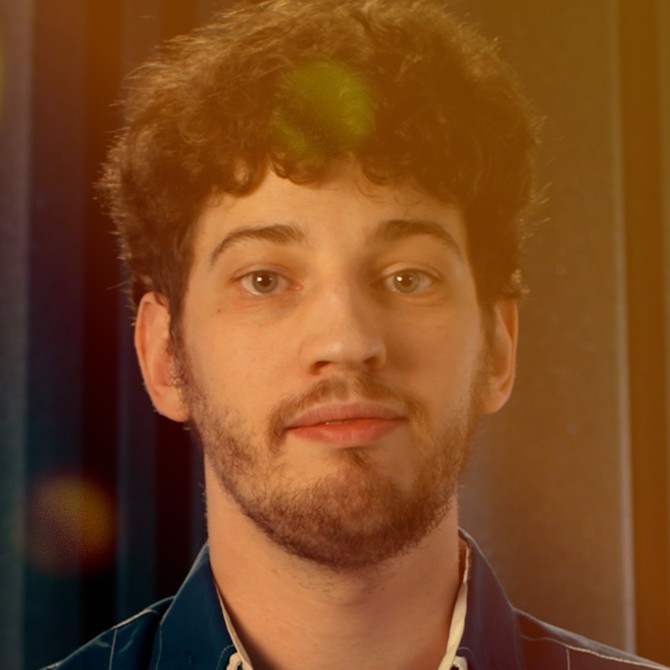 Leon Ritter is a research assistant at Hagen University (FernUniversität in Hagen) in Germany at the Department for Japanese Law of the Institute for International Legal Relations. In 2020, he graduaded from Ruhr-University Bochum with a master’s degree in East Asian Politics. His master’s thesis on Chinese Cyber Security was awarded one of 2020’s Preise für Studierende awarded by Ruhr-Universität for extraordinary theses. He is currently in the planning stages of his PhD project. Beyond hate speech regulation, his interests lie in theories of democracy, constitutional law, direct democracy and the political implications of new technologies.
Leon Ritter is a research assistant at Hagen University (FernUniversität in Hagen) in Germany at the Department for Japanese Law of the Institute for International Legal Relations. In 2020, he graduaded from Ruhr-University Bochum with a master’s degree in East Asian Politics. His master’s thesis on Chinese Cyber Security was awarded one of 2020’s Preise für Studierende awarded by Ruhr-Universität for extraordinary theses. He is currently in the planning stages of his PhD project. Beyond hate speech regulation, his interests lie in theories of democracy, constitutional law, direct democracy and the political implications of new technologies.
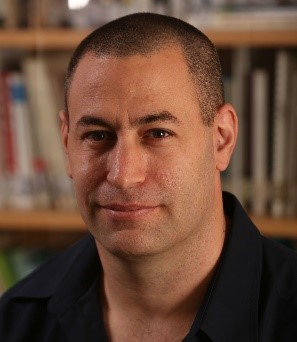 Ido Rosenzweig is the Director of Cyber, Belligerencies and Terrorism Research, Minerva Center for the Study of Law under Extreme Conditions. He is an international lawyer with expertise in international humanitarian law (laws of armed conflict) and international human rights law. Prior to his work at the Minerva Center, Ido worked as a researcher at the Israel Democracy Institute (in the Terrorism and Democracy Research Division) (2009-2014).
Ido Rosenzweig is the Director of Cyber, Belligerencies and Terrorism Research, Minerva Center for the Study of Law under Extreme Conditions. He is an international lawyer with expertise in international humanitarian law (laws of armed conflict) and international human rights law. Prior to his work at the Minerva Center, Ido worked as a researcher at the Israel Democracy Institute (in the Terrorism and Democracy Research Division) (2009-2014).
He has served as the coach for the Interdisciplinary Center’s International Humanitarian Law team (2009 – 2013), directed the “Amicus Curiea” International Human Rights Law Clinic at the Concord Centre in the College of Management (2010 – 2012). He is the co-founder and chairman of ALMA – Association for the Promotion of International Humanitarian Law since 2010. Ido earned his law degrees at Tel Aviv University (LL.B, 2005) (LL.M cum laude, 2010) and Northwestern University (LL.M, with honors, 2010). He served in the International Law Department of the Israeli Ministry of Foreign Affairs (2006 – 2008), is a member of the Israel Bar Association (since 2007) and an experienced computer programmer.
 Eli M. Salzberger was the Dean of the Faculty of Law at the University of Haifa and the President of the European Association for Law and Economics. He is a graduate of the Hebrew University Faculty of Law (1st in class). He clerked for Chief Justices Aharon Barak and Dorit Beinish. He wrote his doctorate at Oxford University on the economic analysis of the doctrine of separation of powers. His research and teaching areas are legal theory and philosophy, economic analysis of law, legal ethics, cyberspace and the Israeli Supreme Court. He has published more than 40 scientific articles. His latest book (co-authored with Niva Elkin-Koren) is The Law and Economics of Intellectual Property in the Digital Age: The Limits of Analysis (Routledge 2012), preceded by Law, Economic and Cyberspace (Edward Elgar 2004). He was a member of the board of directors of the Association for Civil Rights in Israel, of the public council of the Israeli Democracy Institute and of a State commission for reform in performers’ rights in Israel. He was awarded various grants and fellowships, among them Rothschild, Minerva, GIF, ISF, Fulbright, ORS and British Council. Salzberger was a visiting professor at various universities including Princeton, University of Hamburg, Humboldt University, University of Torino, Miami Law School, University of St. Galen and UCLA. Currently he is the director of the Haifa Center for German and European Studies, the director of the Minerva Center for the Study of the Rule of Law under Extreme Conditions and he is the co-director of the International Academy for Judges at the University of Haifa Faculty of Law.
Eli M. Salzberger was the Dean of the Faculty of Law at the University of Haifa and the President of the European Association for Law and Economics. He is a graduate of the Hebrew University Faculty of Law (1st in class). He clerked for Chief Justices Aharon Barak and Dorit Beinish. He wrote his doctorate at Oxford University on the economic analysis of the doctrine of separation of powers. His research and teaching areas are legal theory and philosophy, economic analysis of law, legal ethics, cyberspace and the Israeli Supreme Court. He has published more than 40 scientific articles. His latest book (co-authored with Niva Elkin-Koren) is The Law and Economics of Intellectual Property in the Digital Age: The Limits of Analysis (Routledge 2012), preceded by Law, Economic and Cyberspace (Edward Elgar 2004). He was a member of the board of directors of the Association for Civil Rights in Israel, of the public council of the Israeli Democracy Institute and of a State commission for reform in performers’ rights in Israel. He was awarded various grants and fellowships, among them Rothschild, Minerva, GIF, ISF, Fulbright, ORS and British Council. Salzberger was a visiting professor at various universities including Princeton, University of Hamburg, Humboldt University, University of Torino, Miami Law School, University of St. Galen and UCLA. Currently he is the director of the Haifa Center for German and European Studies, the director of the Minerva Center for the Study of the Rule of Law under Extreme Conditions and he is the co-director of the International Academy for Judges at the University of Haifa Faculty of Law.
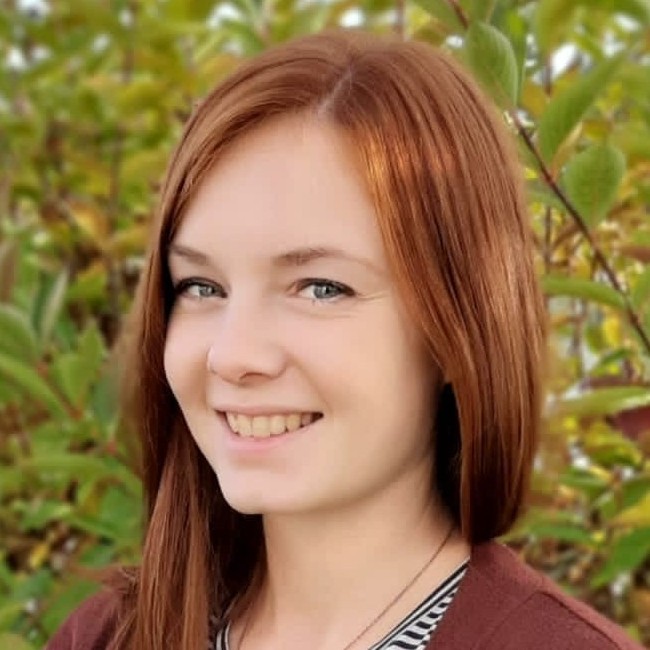 Ursula Kristin Schmid is a research associate for Communication Science at the Department of Media and Communication at LMU Munich. She received her Master Degree in Communication from LMU Munich. After graduating, she initially worked as market researcher with a research focus on media and advertising effects. Since November 2020, she has been working in the project KISTRA (Application of AI for the early detection of criminal offences) in the teaching and research department of Prof. Dr. Rieger. Ursula’s work addresses (online) media effects with a focus on the perceptions of online hate speech as well as the prevalence of online incivility and the evaluation of possible countermeasures. Her Ph.D project deals with the perception, processing and effects of humorous online hate speech, e.g. within memes.
Ursula Kristin Schmid is a research associate for Communication Science at the Department of Media and Communication at LMU Munich. She received her Master Degree in Communication from LMU Munich. After graduating, she initially worked as market researcher with a research focus on media and advertising effects. Since November 2020, she has been working in the project KISTRA (Application of AI for the early detection of criminal offences) in the teaching and research department of Prof. Dr. Rieger. Ursula’s work addresses (online) media effects with a focus on the perceptions of online hate speech as well as the prevalence of online incivility and the evaluation of possible countermeasures. Her Ph.D project deals with the perception, processing and effects of humorous online hate speech, e.g. within memes.
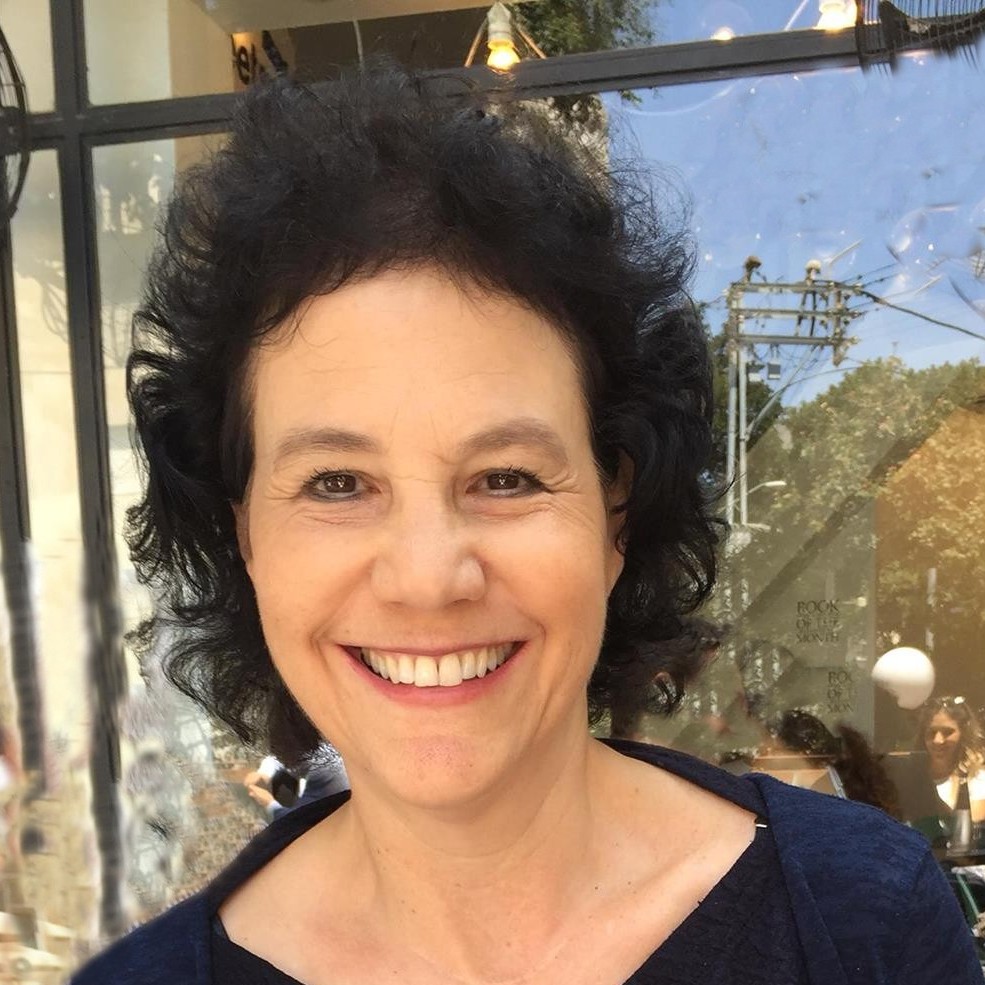
Deborah F. Shmueli is a Full Professor in the Department of Geography and Environmental Studies at the University of Haifa, Head of the National Knowledge and Research Center for Emergency Readiness (awarded in 2018), and a co-Principal Investigator (PI) of the Minerva Center for Law and Extreme Conditions at the University of Haifa (awarded in 2013). After completing a four year term as Department Head, she is currently the Academic Head of the graduate program in Emergency and Disaster Management. The program covers six dimensions of disaster management: planning, prevention, mitigation, response, support and recovery. She is a planner specializing in environmental policy issues related to land use and allocation, water, solid waste and transportation. Strong foci are public sector and environmental conflict management and community and institutional capacity building and public engagement. She has served as a consultant for master plans in Israel (currently a member of the Strategic Planning team for Israel 100 – in year 2048), facilitated collaborative stakeholder processes, conducted conflict assessments and workshops on consensus building, conflict assessment and environmental/public sector conflict management. Over the last ten years she has worked intensively on land issues with Bedouin communities in the Negev, coauthored a book on the subject and served on a five-member Commission of Inquiry (appointed by the Israeli Ministry of Interior) into the desired municipal and spatial planning boundaries of the Bedouin communities in the Beer Sheva District. She currently serves as one of five permanent members of the Commission of Inquiry regarding Unification of Local Authorities, Changes in Areas of Jurisdiction of Local Authorities and the Redistribution of Resources among Local Authorities in the Haifa Metropolitan Area (Haifa Metropolitan Area Permanent Geographic Boundary Committee, Ministry of Interior). She is PI for two research projects for the Ministry of Science and Technology which focus on earthquakes: Evaluating Israe’s Regulatory Framework for Earthquake Preparedness and Response and Recovery, including Public Engagement Mechanisms (completed, two articles in review); and Tools and mechanisms for public engagement in local authorities with regard to earthquake preparedness, response and recovery (completed first year).
Her undergraduate and master’s degree are from the Massachusetts Institute of Technology (MIT) (1980) and her Doctorate degree from the Technion, Israel Institute of Technology (1992).
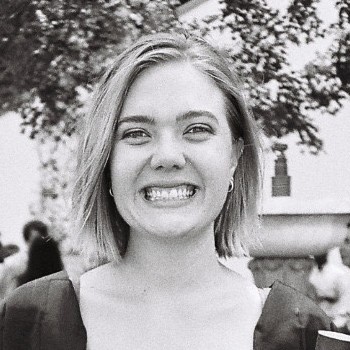 Tegan Snyman is a PhD candidate at the Erasmus School of Law in Rotterdam, the Netherlands. She was an intern in the OHCHR’s Treaty Capacity Building Program and prior to that, she obtained both her LLB and LLM degrees from the University of Stellenbosch, in South Africa. Tegan’s research areas include public international law, international human rights law (with a specific focus on intersectional human rights protection), gender, religion, the formation and function of identity, as well as purposive treaty interpretation.
Tegan Snyman is a PhD candidate at the Erasmus School of Law in Rotterdam, the Netherlands. She was an intern in the OHCHR’s Treaty Capacity Building Program and prior to that, she obtained both her LLB and LLM degrees from the University of Stellenbosch, in South Africa. Tegan’s research areas include public international law, international human rights law (with a specific focus on intersectional human rights protection), gender, religion, the formation and function of identity, as well as purposive treaty interpretation.
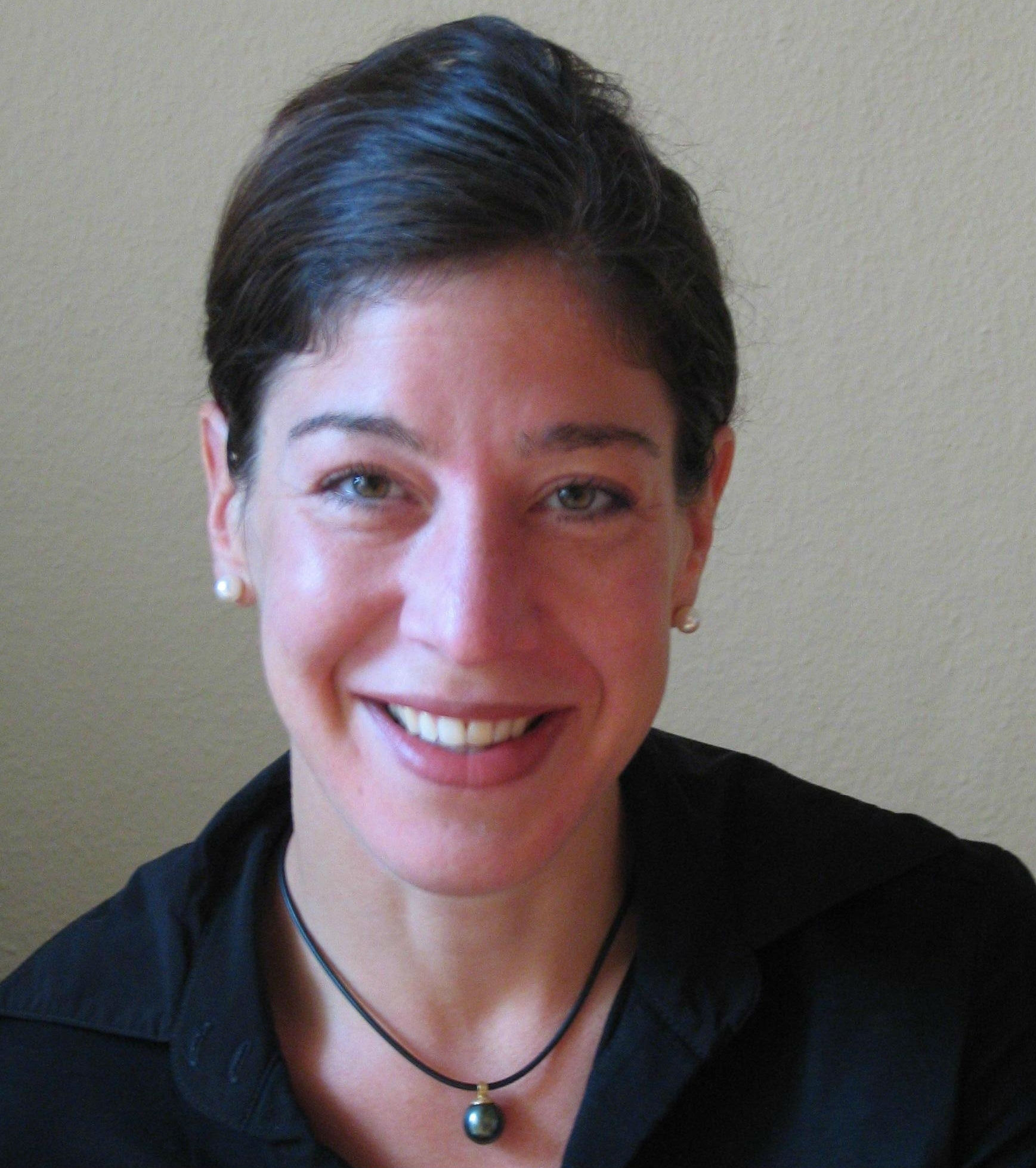 Anne van Aaken is a co PI at the Minerva Center for the RLuEC. She is Alexander von Humboldt Professor for Law and Economics, Legal Theory, Public International and European Law at the University of Hamburg. From 2006 to 2018, she was a Professor at the University of St. Gallen, Switzerland. Before that, she was Senior Research Fellow at the Max Planck Institute for Comparative Public Law and International Law and the Max Planck Institute for Research on Collective Goods. She taught as a guest professor at numerous universities in Europe, Africa, Asia and Latin America as well as the USA and was a Global Law Professor at NYU 2016. She was a Fellow at the Institute for Advanced Study Berlin in 2010/11.
Anne van Aaken is a co PI at the Minerva Center for the RLuEC. She is Alexander von Humboldt Professor for Law and Economics, Legal Theory, Public International and European Law at the University of Hamburg. From 2006 to 2018, she was a Professor at the University of St. Gallen, Switzerland. Before that, she was Senior Research Fellow at the Max Planck Institute for Comparative Public Law and International Law and the Max Planck Institute for Research on Collective Goods. She taught as a guest professor at numerous universities in Europe, Africa, Asia and Latin America as well as the USA and was a Global Law Professor at NYU 2016. She was a Fellow at the Institute for Advanced Study Berlin in 2010/11.
She was a Vice-President of the European Society of International Law and of the European Association of Law and Economics, was Chair of the Programmatic Steering Board of the Hague Institute for the Internationalisation of Law, and is a Member of ILA Committees. She is a member of the EUI Research Council and Member i.a. of the Scientific Advisory Board of European Journal of International Law and of the editorial board of the American Journal of International Law, the Journal of International Economic Law and International Theory.
Her main research areas are international law, (international) legal theory, (behavioural) law and economics including the use of experimental studies as well as corruption. She has published widely on those topics.
